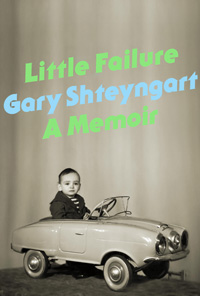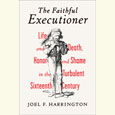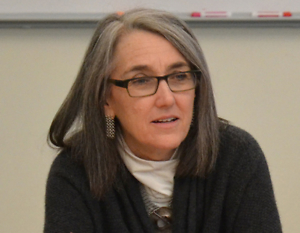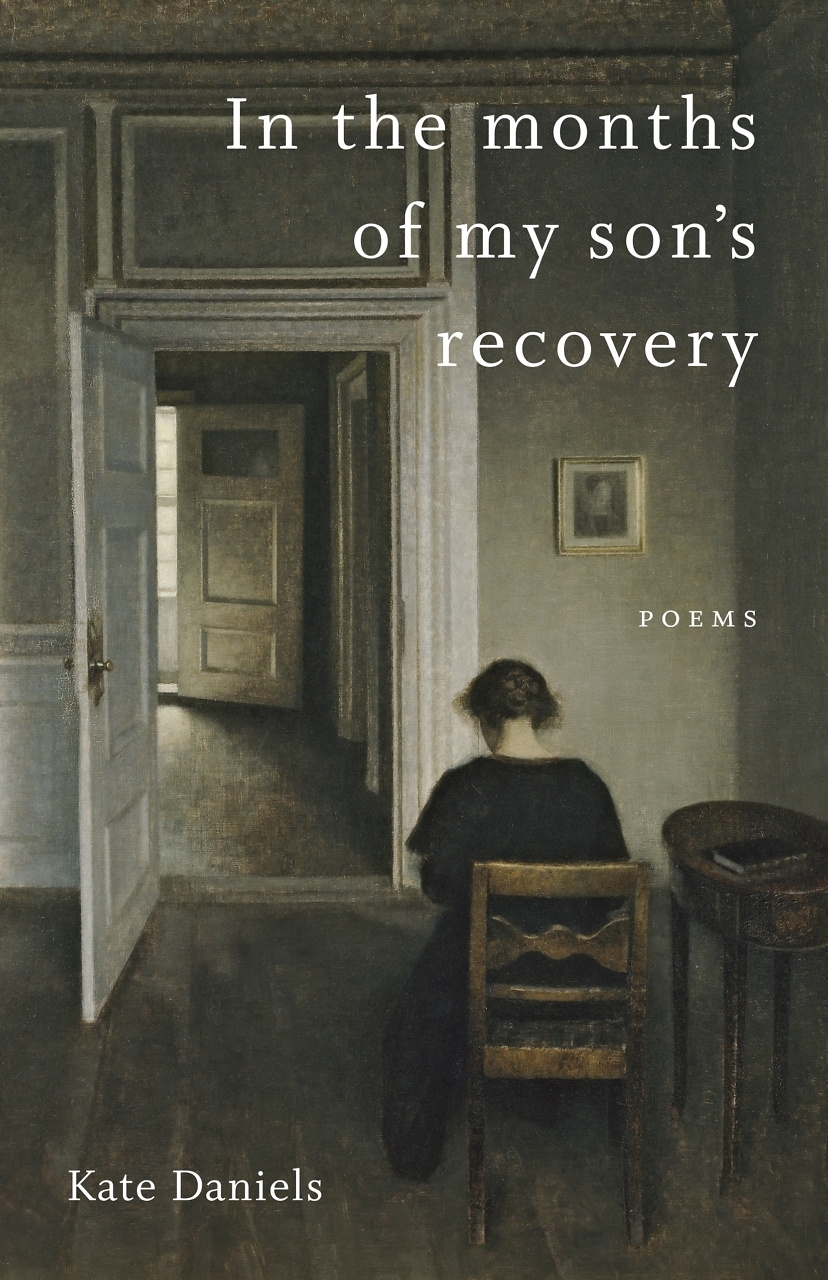Drop Dead Funny
In pursuing all the health advice he could find, A.J. Jacobs was willing to try almost anything (though he drew the line at yogurt colonics)
A.J. Jacobs is wearing a pedometer fastened to his shorts when he walks into the restaurant he chose for our lunch: a health-food joint on Manhattan’s Upper West Side that’s filled with terrifyingly skinny middle-aged women wearing yoga pants. He also has a video camera, which at first I take for a cell-phone headset, clipped to his ear. “Do you mind?” he asks. “It’s for a story. I’m supposed to document everything that happens to me.”
At first, the thought of having a speaking part in one of Jacobs’s signature articles thrills me. Jacobs, after all, is famous for a particular type of experimental (in the true sense of the word) journalism. The Guinea Pig Diaries: My Life as an Experiment chronicled his willingness to try pretty much anything—posing nude, living as George Washington, embracing extreme honesty (in which one says whatever is on one’s mind). And these are just his short-term experiments. For The Know-It-All, Jacobs read the entire Encyclopaedia Britannica. The Year of Living Biblically, his most ambitious book, required him to take literally, for twelve solid months, the proscriptions and prescriptions of the Bible, from stoning adulterers (with pebbles) right down to living by some of Leviticus’s most baffling rules (avoiding mixed fibers, for instance).
These books and essays are much more than the sum of their respective conceits. Jacobs is a first-rate humorist, but his wit is both gentle and profound; he never takes a potshot, and he saves his most intense scrutiny for himself. Though the stunts may seem gimmicky at times, the writing never is; Jacobs’s intellectual curiosity matches his willingness to go out on a limb. He’s absolutely game for anything, and he brings a nimble intelligence to bear on every endeavor.
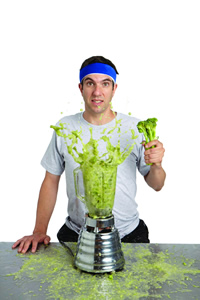 From a distance, it all looks like great fun. And yet, given the chance to be an extra in a genuine experiment, I lose my nerve. The camera makes me so self-conscious I can hardly speak; sheepishly, I beg him to turn it off. And Jacobs, who is a gentleman first and a writer second, complies. We leave the restaurant and walk to Central Park, where Jacobs is promptly hailed by a star-struck reader. (“I’ve read all your books,” the fan gushes.) It’s an auspicious, if bizarre, beginning to our interview (a preview to Jacobs’s appearance at the Southern Festival of Books, held in Nashville October 12-14).
From a distance, it all looks like great fun. And yet, given the chance to be an extra in a genuine experiment, I lose my nerve. The camera makes me so self-conscious I can hardly speak; sheepishly, I beg him to turn it off. And Jacobs, who is a gentleman first and a writer second, complies. We leave the restaurant and walk to Central Park, where Jacobs is promptly hailed by a star-struck reader. (“I’ve read all your books,” the fan gushes.) It’s an auspicious, if bizarre, beginning to our interview (a preview to Jacobs’s appearance at the Southern Festival of Books, held in Nashville October 12-14).
Chapter 16: Does that happen a lot? Do you get recognized on the street? Even without the flowing white robes and the seven-foot staff and the sheep on a leash and the stack of books and the weird health accessories, all of which you’ve sported on the covers of various books?
Jacobs: It happens…sometimes. It has happened. But not what I’d call a lot.
Chapter 16: The Know-It-All and The Year of Living Biblically were tremendously ambitious, but they were, in the end, self-limiting: even the encyclopedia and the Bible have a beginning, a middle, and an end. This book seems different. I suppose you could say that you were limited by your own body, but there is so much out there—probably several Britannicas’ worth of diet and nutrition advice alone. Did you ever feel overwhelmed during your two-year project to become drop-dead healthy?
Jacobs: You’re right—I could have spent another century on this project, assuming I lived that long. To limit things, I focused on two main areas. First, I wanted to follow health advice that has real evidence behind it. For instance, what do studies actually say about Vitamin C for colds?
Chapter 16: I don’t know. That it helps?
Jacobs: No, it doesn’t work. And what do legit scientists think about the sedentary life? (Answer: It will slowly kill you). But then I also wanted to explore a handful of the extremist movements, such as your raw-meat-eating cavemen and your Crossfit groupies who find satisfaction in working out until they vomit.
Chapter 16: Were there extremes that were even too much for you?
Jacobs: Plenty of them. I decided colonics were not for me. Granted, I did get a run-of-the-mill colonic just to see what it was like, but I passed on the more exotic colonic treatments. There’s a buffet of options I declined: coffee colonics, yogurt colonics, you name it.
Chapter 16: Ew. So you do draw the line somewhere. I only ask because you’ve done some incredibly goofy things in the service of your writing. How do you get beyond self-consciousness when putting yourself in public in ways that might shame a lesser man?
 Jacobs: I do have a pretty high bar for humiliation. I’m okay looking ridiculous as long as there’s a chance it will lead to something interesting or insightful. Sometimes I think of myself as a method actor. When I dress in robes and sandals and grow a huge beard, it’s not the real me. It’s a character I’m exploring.
Jacobs: I do have a pretty high bar for humiliation. I’m okay looking ridiculous as long as there’s a chance it will lead to something interesting or insightful. Sometimes I think of myself as a method actor. When I dress in robes and sandals and grow a huge beard, it’s not the real me. It’s a character I’m exploring.
Chapter 16: You seem, always, to be enjoying yourself tremendously—but tell me honestly: are there moments when you’ve quailed?
Jacobs: There are still times even I get embarrassed. When my wife ran into some old friends at an ice-cream store and pretended that she didn’t know me (I looked like Moses at the time), I thought, “Am I taking this too far?”
Chapter 16: You’ve encountered some astonishing subcultures in your books. In this one, you visited the lunatic fringes of corporeal obsession. What extremes, if any, secretly attracted you? Or did the extremes lead you time and again back to a well-adjusted Aristotelian mean?
Jacobs: I have mild OCD (and did before it was trendy, I add defensively). So I was very tempted by the extreme germaphobia crowd, as well as the anti-chemical folks. When I wrote about the Bible, I spent a lot of time with Orthodox Jews who eat kosher. Not just regular kosher, but glatt kosher (which is sort of like super-kosher). There are folks who won’t drink New York tapwater because it contains microscopic organisms that might be considered forbidden crustaceans. It’s a fascination with finding purity in this dirty, messy world. And those obsessed with chemical-free life are sort of the secular equivalent of that. There are people—like my lovely aunt—who are wary of using metal cutlery because it might leach heavy metals into the food. I understand the impulse. But the other side of my personality—the Aristotelian moderate—resisted it in the end.
Chapter 16: Talking about your aunt reminds me that, to my mind, the best parts of all your books are the stories you write about your family. I’d argue that the real stars of Drop Dead Healthy are your Aunt Marti and your grandfather.
Jacobs: I agree. My grandfather and aunt were compelling characters for whom I take no credit whatsoever. My grandfather showed me the importance of staying busy and passionate, even in old age—the guy was ninety-three and writing op-ed pieces about the environment. He showed me that this is as important to longevity as a thousand cups of wheatgrass juice. And my aunt was a lovely self-professed eccentric who adopted every non-Western health fad that ever was; she died unexpectedly and suddenly of leukemia at the end of my project. It was devastating. I’m still trying to process her death and figure out if there’s a moral. It was certainly a lesson in how we can’t totally control our fates. At times it made me want to give up and eat Bugles corn chips for breakfast, lunch, and dinner. But in honor of my aunt, I resist. My motto: carpe diem, but carpe it responsibly and moderately.
Chapter 16: Your wife Julie is an awfully good sport.
Jacobs: She is. Though, there is a part in The Year of Living Biblically about seats: The Bible says you can’t touch a woman during her “time of the month.” And if you take Leviticus really strictly, you can’t sit on a seat where a menstruating woman has sat, because the seat has become impure. Julie found that offensive, so she sat in every seat in our apartment, and I had to stand for much of the year. Also, she wasn’t so happy about my building a biblical hut in our living room, but she let me.
Chapter 16: According to Drop Dead Healthy, standing is supposed to be good for you. Of all the new habits you learned, the lifestyles you tried on, which ones did you stick with?
Jacobs: I have actually given up the sedentary life. I was really surprised by all the research that says sitting at your desk all day is terrible for you. One doctor even told me, “Sitting is the new smoking.” So I bought a treadmill, put my computer on top of it and wrote the book while walking. And I still do most of my work on a treadmill. I love it. It makes me feel more energetic, if ridiculous-looking. I also eat smaller portions, eat more whole foods, avoid sugar (when I can), and wear my earplugs, since noise is a health hazard.
Chapter 16: Well, this is no treadmill, but thanks to you I fall asleep better. (As you suggest in the book, I count backward by threes at bedtime.) What were the most useful little tricks you learned—not entire lifestyle changes, perhaps, but tiny gimmicks like counting backward that really work?
Jacobs: I’m so glad you say that! I still count backward by threes. A couple of other gimmicks:
~Before you eat something, take a photo of it with your cell phone camera. The very act of taking a photo will make you eat more healthily. I swear. When I’m contemplating whether to have an Oreo, sometimes I’ll opt against it, knowing it would show up as a photo on my daily visual food log. Not that anyone’s checking. But I’d know.
~Trade worries with a friend. Seriously. Ask them to worry about making a tough deadline, and they can ask you to worry about their kids’ grades at school. You’ll feel better knowing that your problem is being worried about, but you don’t have to experience the emotional toll of doing it yourself.
~Buy a pedometer. Best ten dollars I spent this year. Just having a pedometer makes you want to walk more. I try to make it to 10,000 steps a day. It gives me an embarrassing amount of pleasure when I do. Look, I’m up to 9,000 already, since we left the restaurant!
Chapter 16: As I read Drop Dead Healthy, I couldn’t help but be a little surprised that you don’t spend much time worrying about the body’s appearance, concentrating instead on its overall health. Though you did lose weight and look fabulous, you don’t focus on (say) the relentless pursuit of six-pack abs.
Jacobs: I pretty much knew I could never have six-pack abs. One of my favorite discoveries was a Harvard Medical School journal that argued that six-pack abs are actually unhealthy. Apparently, rock-hard abs make you breathe more shallowly instead of from your diaphragm. Who knows if that’s true, but I grabbed onto that fact and told everyone. And it was from a Harvard publication! It wasn’t like I saw it on a Marilu Henner informercial.
Chapter 16: One final, general question: Which of your books is your favorite?
Jacobs: The Year of Living Biblically, just because it changed my worldview more profoundly than any of the other projects. I grew up with no religion, and I had a very narrow view of the topic. I couldn’t understand why so many smart people were deeply religious. Why would you believe in these ancient, dusty legends? I thought it was the equivalent of believing in the tooth fairy. But I got to see life from their point of view, and I found many things I liked about religion. Not everything, and I still don’t consider myself particularly religious. But I saw the benefits first-hand.
A.J. Jacobs will discuss Drop Dead Healthy at the twenty-fourth annual Southern Festival of Books, held October 12-14 at Legislative Plaza in Nashville. All events are free and open to the public.

